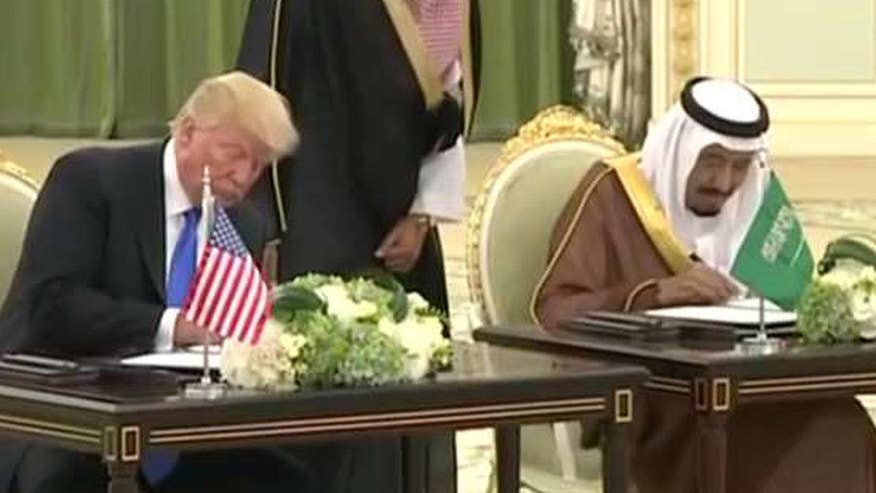
the staff of the Ridgewood blog
RIYADH, SAUDI ARABIA – In a striking shift from decades of oil-based diplomacy, former President Donald Trump’s state visit to Saudi Arabia this week showcased a bold new alliance — one driven by AI, chips, and massive tech investments.
The three-day visit, filled with royal pageantry and escorted by Saudi F-16s, was less about petroleum and more about silicon powerhouses. The guest list was a tech titan roll call: Nvidia CEO Jensen Huang, OpenAI’s Sam Altman, Tesla’s Elon Musk, along with executives from Google, Amazon, Palantir, Uber, AMD, and more.
Saudi Arabia Bets Big on AI with Nvidia, Amazon, AMD Deals
Leading the charge is Humain, a tech-focused arm of the Saudi Public Investment Fund (PIF), which announced:
-
A multi-billion-dollar AI factory initiative with Nvidia to deploy hundreds of thousands of advanced GPUs
-
A $5 billion deal with Amazon
-
A $10 billion strategic collaboration with AMD
Other major U.S. tech companies followed suit:
-
Scale AI plans to open an office in Saudi Arabia
-
Qualcomm is partnering with Aramco’s tech division
-
Google is expanding its regional AI hub
-
Groq is handling inference work for Humain
This wave of AI deals in the Gulf outshone traditional headlines, like arms sales and Middle East diplomacy.
A New Chapter in U.S.–Gulf Relations: “Compute Over Crude”
According to Mohammed Soliman of the Middle East Institute, this transformation marks a “divorce” from oil-based security pacts. Instead, the U.S.–Saudi relationship is now grounded in AI compute power and chip infrastructure.
“The U.S.-Gulf relationship is no longer about energy for security… They’re more tied around compute,” Soliman said.
$600 Billion Commitment from Riyadh to U.S. Tech
The White House announced a sweeping $600 billion investment commitment from Saudi Arabia into the U.S., including:
-
$20 billion in U.S. data centers from Saudi tech firm DataVolt
-
$80 billion in joint U.S.–Saudi tech investments with Google, Oracle, Salesforce, AMD, and Uber
This investment surge came alongside a rollback of Biden-era AI chip export restrictions, making it easier for Gulf nations to import advanced U.S. semiconductors.
🏭 Will the Gulf Become the Next Global Chip Hub?
Experts say this AI investment wave could be the beginning of semiconductor manufacturing in the Middle East. With geopolitical risks threatening Taiwan’s chip dominance, the Gulf’s deep pockets and fast-moving leadership make it a compelling destination for future chip fabs.
“It’s only a matter of time before [Gulf countries] bring in fabs like TSMC or Samsung,” Soliman said.
Concerns from Capitol Hill
While many Republicans embraced the deals, some lawmakers voiced national security concerns about possible Chinese influence through Gulf partnerships.
“Deals like this require scrutiny and verifiable guardrails,” warned Rep. John Moolenaar (R-Mich.).
Still, criticism was mostly muted — especially compared to scrutiny over a $400 million plane gifted to Trump by Qatar.
🇺🇸 Why the U.S. Must Stay in the Game
Rob Blair, a former Trump telecom official, said America’s proactive stance in exporting AI infrastructure is vital:
“If U.S. tech companies don’t show up, China will fill the void — just like it did with 5G telecom.”
Take the Wall Street Walking Tour https://www.facebook.com/unofficialwallstreet #WallStreetTours,#FinancialDistrictExploration, #ExploreWallStreet, #FinancialHistoryTour, #StockMarketExperience, #FinancialDistrictDiscovery, #NYCFinanceTour,#WallStreetAdventure
